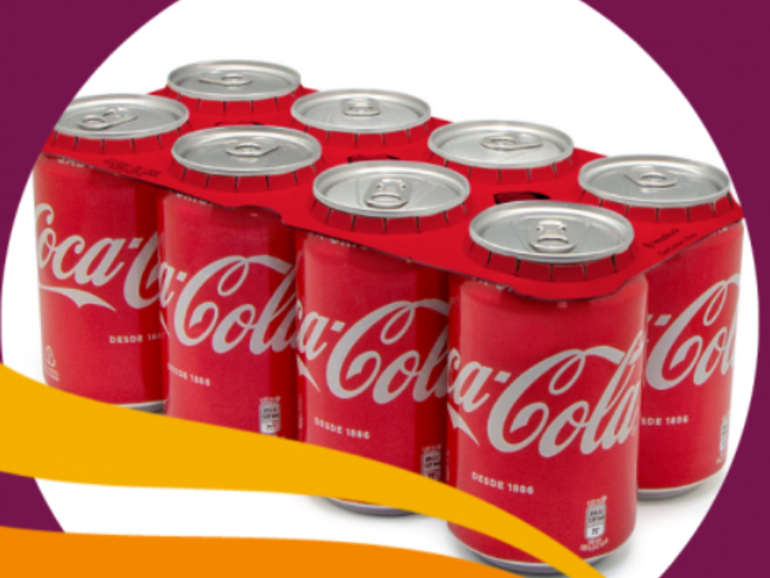Coca-Cola European Partners, which bottles Coca-Cola across 13 countries, had to keep its supply chain and offices running amid the COVID-19 pandemic and now is facing a second wave.
Nico Orie, Vice President of People and Culture, Coca-Cola European Partners, walked me through the technology and cultural changes to manage employee safety, business continuity and productivity.
Here are some of the highlights of our chat.
The latest COVID-19 wave across Europe. Orie said his company’s approach to work is a hybrid. There are processes and safety procedures for supply chain workers. And then there are office workers, who can work remotely in many cases. The choreography is managed with ServiceNow’s workplace safety suite.
Orie said:
A large part of our workforce is working in supply chain, and they have been continuing. They have done a fantastic job of continuing to work in the supply chain, and to ensure our customers and consumers have access to their favorite beverages. Also, our commercial teams have been on the road when it was possible.
In the office, it’s a bit of a mixed picture. We operate in 30 European countries, so depending on the lockdown measurements we were in situations of full lockdown, semi-lockdown, what have you. So I think the key word is flexibility, and clear focus on health and safety. So we’ve put our people clearly at number one position. We already had a strong track record on health and safety, but we further emphasized that. And for the rest, we are very flexible in adapting to the situation, and we put in place some technology to help us with that.
Technology and culture. Orie noted that Coca-Cola European Partners didn’t go high tech with proximity detectors and over-engineered approaches because COVID-19 safety is often more about process and culture.
We created a very simple platform for people, where they could register, or give their intention to go back to the office. And then there is a process of allocating their request to the right place in the office. And there is a support, including facilities and managers monitoring that and reporting on it. So our main functionality we employed with ServiceNow is the allocation of workspaces, and making it really easy for people, and flexible on the day, to make a choice.
In supply chain the usage of the technology there is relatively low. There is a clear process of checking in into the workplace, where people have to go through certain procedures. There are clear procedures in terms of working in the workplace, in the supply chain. So in a way, supply chain has a large experience with applying those rules. It’s simply new rules that are applying.
“I would say the majority of this is culture, it’s behavior, it’s how do you team up? How do your leaders behave? It’s the attention for the needs of people. So I would say it’s probably a 70/30, 80/20 type of percentage (culture to technology),” he said.
Office capacity fluctuates a lot. Orie said there are countries that cap the number of workers allowed in the office. Other countries are in lockdown again. “We’re following 100% the guidelines that have been given to us by local governments,” said Orie. “It’s tailored to that country’s specific situation.”
Testing. Orie said that Coca-Cola European Partners hasn’t been tracking testing of employees due to data privacy. Instead the company is focused on identifying cases, registrations and quarantines. Orie added that self reporting has worked well.
He said:
We have high trust in our workforce. The process works very well. There’s a very low threshold for people to register then. In most of European countries there is income support, obviously, on good level, so people are not directly impacted also in terms of their income. So there is a low threshold for people just to report when a case occurs, or when they are infected.
The future of work. Orie said he expects a hybrid approach going forward, but Europe may have more of a back-to-office approach. Orie said:
There is clear evidence that to be creative as a team, to build trust in a team, you do need opportunities to meet each other face-to-face, sit with each other, sit with the team. So there always will be a very important part of people needing to come together in an office environment.
Probably that will change the setup of the office. Some people say it will be the new clubhouse. It’s where you’ll go to strengthen your culture. It’s a place where you can quietly work.
And we should also not underestimate there’s still a lot of people in relatively small apartments, sometimes with the kids running around. It’s not easy to focus on work. So I think there’s always a need for offices
What keeps you up at night. Orie said:
This summer we thought we were getting to the end of this, we’d get it under control. And then the second wave comes, and as you know, in a lot of European countries, we have seen the re-installment of similar lockdowns.
I think the biggest worry is the mental health. It’s sometimes not easy to work from a small apartment somewhere in Paris, or Barcelona or wherever you are, and to deal with the situation. So the good news of a potential vaccine is good news. Hopefully, there’s now a light at the end of the tunnel. But the biggest worry is just wellbeing and mental health of people.



